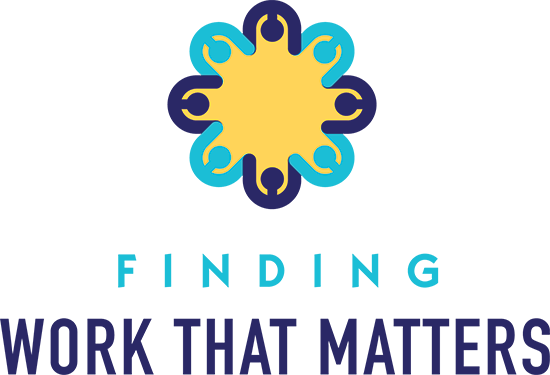Why You Need to Know Your Strengths
/Are you wanting to get into the driver's seat of your work life? Do you want to shape your work to something that gets you excited about your work day?
One of the best ways to begin the journey of an invigorated work life is to consider your strengths. Do you know yours? Why you need to know your strengths could make the difference between feeling dragged down by your work and feeling excited about it.
Below are 3 misconceptions about strengths and some ideas of how to look at yours in a different way.
Strengths are what you are good at.
This is a common misconception. Often what you are good at is what you have done over and over again; sometimes you become an expert. It may be a skill or a trait that was encouraged by others or something that you fell into. For example, as a first job, you may have worked in a restaurant and became really good at interacting with irate customers. Is it a strength? Not necessarily. The clue is if it left you feeling drained. That would be a weakness.
A weakness, according to Marcus Buckingham, is something that leaves you feeling weak. Depleted. Spent. Done in. Worn out.
A strength is something that you do that leaves you feeling strong. Engaged. Energized. Enlivened. Invigorated.
Other people can tell you your strengths.
Identifying your strengths is challenging! As you were growing up, strengths were not a focus. More likely you were taught about what needs improvement. This starts in school where there is an emphasis on not only being good at everything, but to spend more time on correcting your weaknesses, which were often pointed out by others.
This is the root of looking to others to tell you your strengths.
Why other people can't tell you what your strengths are is because they can't be you. A strength, as described above, is a feeling. And feelings are an inside job. When we think of being energized, it is a sense of feeling alive. I like to think of the word expansive when I am doing something that makes me feel alive. It gives a sense of space.
A strength is something you learn.
You don't decide what a strength is. It is discovery work. Think of your strengths as your natural gifts and talents. There are lots of clues to your strengths - like what you loved to do as a child. When Carl Jung was a child, he loved digging in the dirt. Later in his life, he noted that his work was about unearthing the unconscious and bringing it to light; he tied this to his childhood delight of playing in the mud.
What I appreciate about Marcus Buckingham's work is that he says that we will grow the most when we are using our strengths. Part of this is because we will be more engaged, more curious and more willing to learn more. The bonus will be experiencing more happiness.








